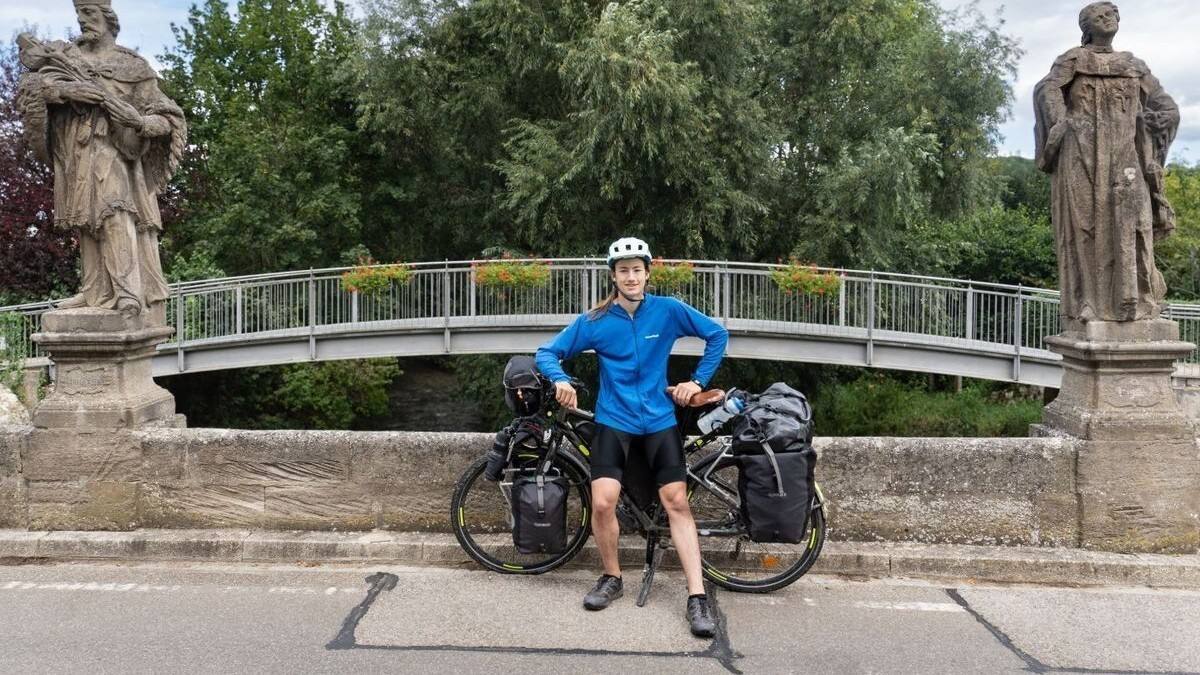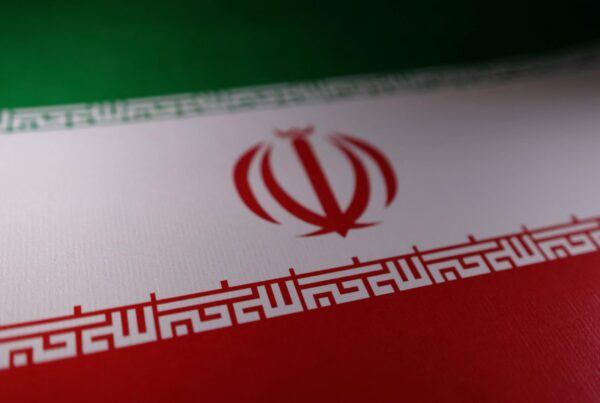French-German cyclist Lennart Monterlos has been released by Iranian authorities after being detained for nearly four months on charges of espionage. The cyclist’s arrest on June 16 had sparked diplomatic tension between Tehran, Paris, and Berlin, with both European governments calling for his immediate release.
According to official statements from Iran’s judiciary, Monterlos was accused of having ties with intelligence agencies from France, Germany, and Israel. However, after an extensive investigation, authorities concluded that there was insufficient evidence to support the espionage allegations. His release marks a rare moment of de-escalation amid strained relations between Iran and European nations.
Background of the Arrest
Iran’s detention of foreign nationals has often been linked to broader geopolitical disputes. In recent years, several dual nationals have been accused of espionage or “acting against national security.” Monterlos’s case was no exception, as Tehran initially alleged that he was “collecting sensitive data” while cycling through restricted zones near military facilities.
Espionage Accusations and Legal Process
Iranian prosecutors argued that the cyclist had traveled to “strategic regions” without authorization and had been in contact with individuals connected to Western intelligence networks. These claims, however, were contested by European diplomats, who maintained that Monterlos was merely a long-distance traveler documenting his cycling journey across Asia.
Throughout the legal process, the French and German embassies coordinated diplomatic efforts, demanding consular access and transparency. Reports from human rights organizations, including Amnesty International, criticized the opaque nature of Iran’s judicial system, describing Monterlos’s detention as arbitrary and politically motivated.
European Reactions and Negotiations
The French Foreign Ministry welcomed his release, expressing gratitude for the “intense diplomatic work” that led to the outcome. Germany’s Foreign Minister also praised the collaborative approach between the two nations, while calling for Iran to cease detaining foreign citizens for political leverage.
European media outlets have noted that Monterlos’s case fits a recurring pattern, where Tehran uses detained foreigners as bargaining tools during periods of international tension. Analysts suggest his release might be part of a broader diplomatic gesture aimed at reducing pressure as Iran seeks to re-engage in economic discussions with the European Union.
Diplomatic Context and Broader Implications
Iran’s release of Monterlos comes at a sensitive time. Tehran has faced increasing isolation due to its nuclear program and support for militant groups in the Middle East. The detention of Western nationals has repeatedly undermined its international credibility, while worsening domestic unrest over economic hardship and restrictions on civil liberties.
Iran’s Strategy Toward Foreign Nationals
Observers say Iran’s pattern of detaining dual nationals reflects a complex strategy. It allows Tehran to signal defiance toward Western governments while maintaining a potential diplomatic card for negotiation. Monterlos’s freedom might therefore signal an attempt by Iranian officials to project flexibility amid mounting pressure from international sanctions.
On the other hand, Tehran insists its judiciary operates independently, denying political interference in legal matters. Iranian state media framed the release as an example of “justice served,” emphasizing that the decision followed a fair and complete investigation process.
The Role of Humanitarian Diplomacy
Humanitarian diplomacy played a critical role in Monterlos’s release. Multiple non-governmental organizations, including Reporters Without Borders and the International Cycling Union (UCI), publicly advocated for his freedom, highlighting his record as a sportsman and adventurer rather than a political operative.
In one of his few statements after being released, Monterlos thanked supporters worldwide for “never giving up hope.” He described his detention as a “difficult but eye-opening experience” and expressed a desire to continue cycling “as a symbol of peace and connection across nations.”
European-Iran Relations in Flux
The episode has reignited discussions on how European countries should manage diplomatic relations with Iran, particularly amid ongoing tensions over its nuclear ambitions. France and Germany, both signatories to the 2015 nuclear accord (JCPOA), have struggled to maintain dialogue with Tehran since the U.S. withdrawal from the deal in 2018.
Renewed Calls for Caution
Monterlos’s release, though welcomed, also raised concerns about the safety of other European citizens traveling or working in Iran. Several governments have renewed travel advisories, warning of potential risks for dual nationals. Human rights groups continue to call for the release of other detainees, including researchers, journalists, and aid workers.
Link to Broader Political Negotiations
Analysts argue that the timing of the cyclist’s release might coincide with Iran’s attempts to restore trade and humanitarian ties with Europe. The move could also be part of a quiet diplomatic understanding to ease future talks on sanctions relief and energy cooperation.
Diplomatic sources in Brussels told Olam News that European envoys see the gesture as “a small but positive signal” in a long and difficult relationship. “Iran understands that trust-building is necessary if it wants to re-enter the global economy,” one official said.
Reactions from Sports and Human Rights Circles
Sports organizations across Europe have expressed relief following Monterlos’s release. The European Cyclists’ Federation stated that his case demonstrates the need for greater protection for athletes traveling through politically volatile regions.
Athlete Safety in Conflict Regions
Cyclists and adventurers often traverse multiple countries as part of endurance challenges, but such journeys can become entangled with political suspicion, particularly in states with limited transparency. Monterlos’s experience has prompted renewed calls for international guidelines to protect travelers from arbitrary detention.
The International Olympic Committee (IOC) has also weighed in, suggesting the establishment of a “humanitarian travel mechanism” for athletes. “Sports should never be politicized,” said an IOC representative, “and no athlete should be detained for simply crossing borders on a bicycle.”
Public Opinion and Global Solidarity
The story has sparked an outpouring of solidarity online, with thousands of cyclists and activists using the hashtag #FreeLennart during his detention. Following his release, Monterlos’s social media accounts were flooded with messages of support, many praising his resilience and calling for attention to others still detained under similar circumstances.
Human rights experts emphasize that individual cases like Monterlos’s illustrate a broader issue of freedom of movement and the dangers of criminalizing foreign travelers. “Each release is a victory,” said one Amnesty representative, “but it also reminds us how fragile international protections remain.”
Looking Ahead
As Lennart Monterlos reunites with his family in Europe, questions linger about how future relations between Iran and the European Union will evolve. While his release offers a glimmer of hope, other detainees remain imprisoned, and tensions over Iran’s nuclear activities persist.
Observers note that this episode, though resolved peacefully, underscores the importance of sustained diplomatic engagement and the role of international advocacy in protecting human rights. For now, Monterlos’s story stands as both a cautionary tale and a testament to resilience in the face of political adversity.
In a closing statement, France’s Foreign Ministry reaffirmed its commitment to “defending citizens abroad and standing firm against arbitrary detentions.” Meanwhile, supporters across Europe continue to celebrate Monterlos’s return — a moment that, at least briefly, bridges divides between nations and reaffirms faith in diplomacy.
Monterlos’s ordeal highlights the fragile intersection of politics, sports, and human rights. As he begins a new chapter of freedom, his journey serves as a reminder that the pursuit of peace and understanding can begin with a single cyclist on a long, uncertain road.
For more coverage on human rights and international diplomacy, visit Olam News.




